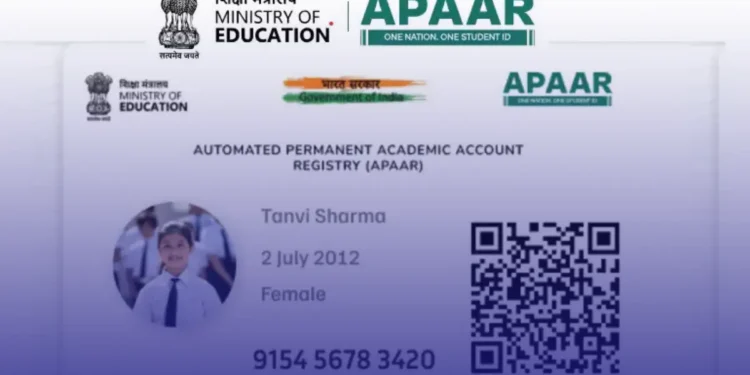The introduction of the APAAR ID (Automated Permanent Academic Account Registry) has stirred controversy in India. Marketed as a tool to streamline student records, APAAR’s true nature may not be as voluntary as it seems. The Union Government insists that it is a voluntary system, but the reality is that students can’t even obtain an APAAR ID without linking it to Aadhaar. This requirement pushes students into the Aadhaar ecosystem, even though the Supreme Court ruled that Aadhaar cannot be mandatory for education.
Aadhaar Linkage: Is It Really a Choice?
The concept behind APAAR is to create a national student ID system, simplifying the management of academic records. However, the implementation has raised concerns. Students must first link their APAAR registration to Aadhaar, which contradicts the Supreme Court’s 2017 ruling on privacy. The government claims this system is voluntary, but the requirement of Aadhaar for registration feels more like coercion. The concern here is that the government is bypassing legal restrictions by pushing Aadhaar in the name of efficiency.
Key Issues with APAAR
A major issue with APAAR lies in its impact on privacy and consent. The Supreme Court’s judgment on privacy emphasized that personal data must be collected with informed, voluntary consent. However, APAAR seems to violate this principle. Students may have no choice but to comply with Aadhaar linkage to continue their education, which raises questions about whether they are truly giving consent. The lack of transparency about how the data will be used and stored only heightens the concern.
Does APAAR Comply with Privacy Standards?
APAAR fails to meet the privacy standards set by the Supreme Court. The government introduced the Digital Personal Data Protection Act (DPDPA), but APAAR does not offer adequate privacy protections. For instance, the system may share students’ personal data without clear consent or understanding of its usage. It does not outline who owns this data, how long it will be stored, or whether students can opt out. Without these crucial details, APAAR risks becoming another mass surveillance tool instead of a student-centric initiative.
Potential Long-Term Consequences of APAAR
Implementing APAAR sets a concerning precedent for how digital identity systems could work in the future. If the government makes the system mandatory, it could pave the way for more digital identity requirements across various sectors, like employment and healthcare. The risk is that the government will subtly coerce students into joining the Aadhaar ecosystem, and the same tactics may extend to other areas of life. This could lead to a gradual erosion of personal autonomy and privacy.
Impacts on Marginalized Communities
APAAR could disproportionately affect marginalized communities. Students from rural areas or those who have faced difficulties registering for Aadhaar may find themselves excluded from the system. While the government claims that the system aims to improve inclusivity, the reality might be the opposite. Those without access to digital services or Aadhaar may struggle to pursue their education.
What Needs to Change?
If the government wishes to introduce a national student registry, it must ensure that participation is voluntary, transparent, and legally protected. APAAR should operate independently of Aadhaar, with strong safeguards around data usage and privacy. Until these changes occur, it risks becoming another tool of government overreach, disguised as a convenience.
The Supreme Court’s earlier decision on Aadhaar in education must remain reinforced, and the government should revisit the APAAR initiative to address these concerns. The outcome of this issue will shape how India evolves digital governance, balancing privacy with administrative efficiency.
Source: The Indian Express










